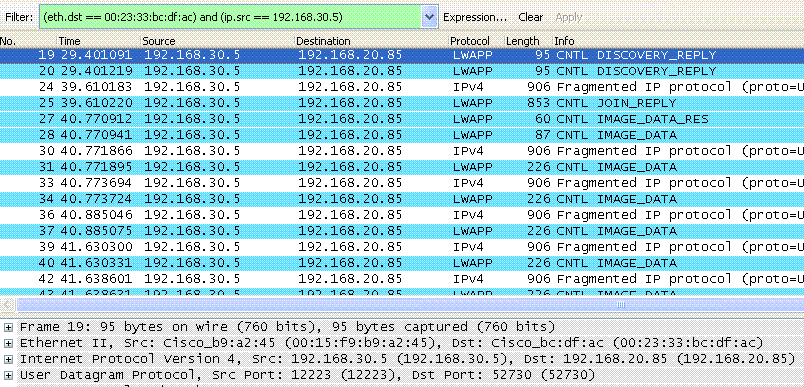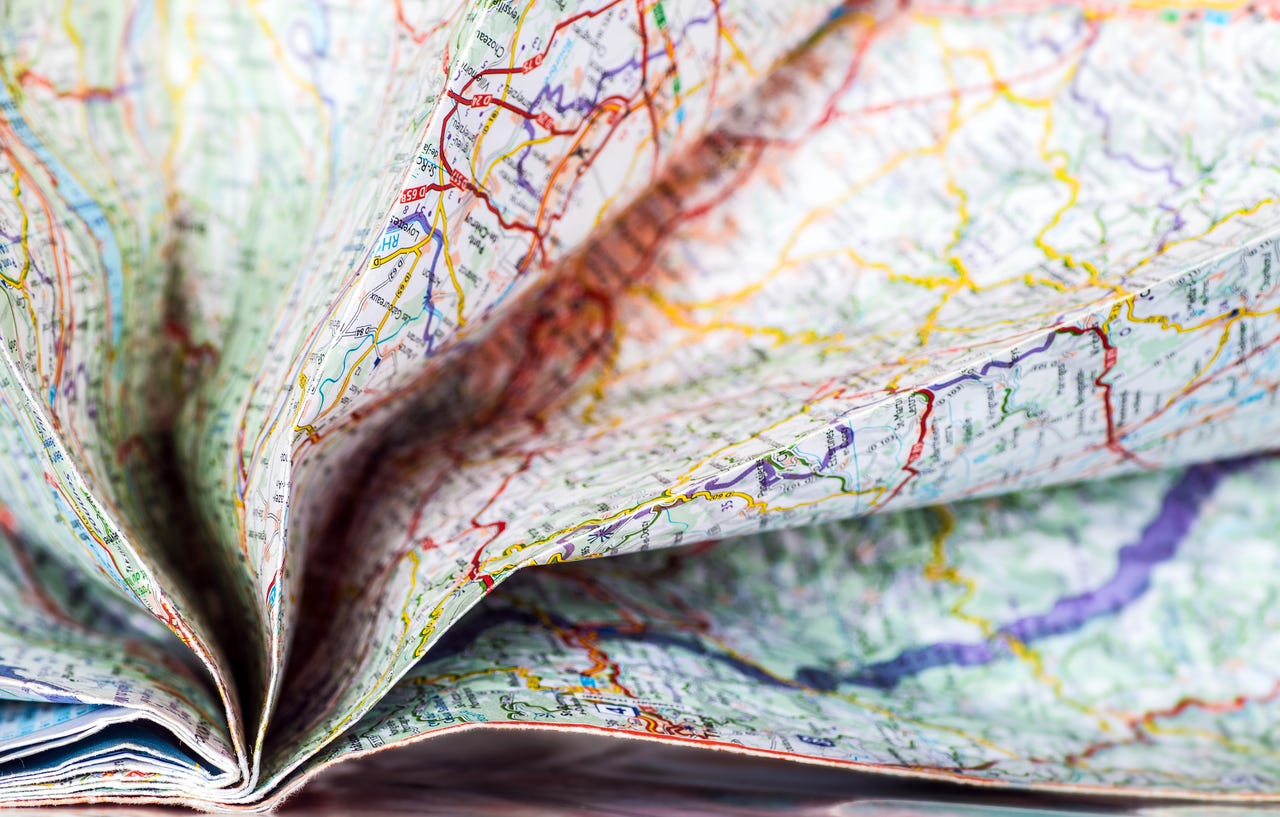
































One of my kids is playing a regional rival in soccer and the venue is in unfamiliar territory.
Getting there on time on a weekday is challenging enough thanks to endless domestic chores. However, my recent ritual -- borne of a discovery that using navigational apps has been linked to higher rates of dementia -- is making things worse.
Also: The best GPS trackers for kids, according to experts
Early afternoon, I go into Google Maps and print out directions to the game, which include the "steps" that I have to take, important landmarks, and a map of the route.
I haven't used an actual road map in at least 15 years and the whole process now seems a little nuts.
When I first started this ritual, my son received it with incredulity, then rage, then sheer panic at the prospect of being late -- and benched for the start of the game. I held firm.
As we head off, I hand the directions to him. They're just for safety, though. We both try and guess the turns, exits, and landmarks without reading the directions, making sure to verify each step for accuracy lest a catastrophic mistake land me in purgatory for a few days.
It's a nice father-and-son game, actually, and quite empowering since it drills into you concrete knowledge of your physical world which is elusive when you're following that blue digital arrow on a screen.
I make the cardinal mistake of bringing up London taxi drivers. "Pops, we know," says my son, brusquely. "You've told us about the London cabbie's hippocampus about a million times. We get it."
Also: Can't find your car keys? Robots will remember better than you can
I don't blame the kid -- for I am truly obsessed with the hippocampus.
Or, I should say hippocampi, since it consists of two S-shaped parts residing on either side of the rear part of the brain, and is the Greek word for seahorse, to which it bears an uncanny resemblance.
The hippocampus is an integral part of the brain's limbic system, which is responsible for behavioral and emotional responses. The hippocampus is crucial for learning, memory formation, navigation, and mental mapping -- and the unique ability to comprehend arbitrary linkages to things that artificial intelligence struggles with.
Also: AI desperately needs a hardware revolution and the solution might be inside your head
Additionally, short-term memories are transformed into long-term ones in the hippocampus, and then stashed away in another part of the brain.
A decline in human cognition can occur due to several things. One of them is the clumping together of toxic tau and beta-amyloid particles -- proteins that were once good but have now gone bad, like a legion of Anakin Skywalkers.
The other factor, studies show, is a shrinking hippocampus.
A recent study published by scientists inNeurologymagazine, involved accumulating data from 128 older adults over a 10-year period that analyzed these two factors via cognition tests and brain scans.
Also: How a new law protects your thoughts from tech companies -and why it matters
They found a linkage between slumping cognition and a shrinking hippocampus. This remained the case even when they took the tau and beta-amyloid particles out of the equation.
Unfortunately, while over 90% of Alzheimer's research is devoted to the link between memory and Alzheimer's, precious little research devotes attention to the relationship between spatial navigation and hippocampus size.
However, two scientists from the University of Texas at Dallas recently decided to do so.
Dr. May Yuan is a geographer and professor of geospatial science; her work investigates linkages between technology, environment, and health.
A few years ago, she began pondering the connection between the routes we follow every day and incidences of Alzheimer's. To investigate this further, Yuan sought some help from Dr. Kristen Kennedy, associate professor of psychology in the University's School of Behavioral of Brain Sciences.
Kennedy, who specializes in the neurobiology of aging and cognition, suggested that they tap into the vast datasets of the National Alzheimer's Coordinating Center, which include a person's Alzheimer's diagnosis with specific information about where they live, down to the ZIP code.
Also: I used the Apple Vision Pro for my 8-hour work day, and it left me wanting more
"Our hypothesis is that if you navigate spatially complicated environments for most of your life, you're firing the brain cells in your hippocampal formation that make cognitive maps," said Kennedy "If you live in a one-stop-sign town, you don't normally practice and experience this. As a result, you're not preserving those brain circuits."
The scientists employed machine learning to try and establish linkages between Alzheimer's patients in the database and various other factors such as education, income, or gender -- and found no linkages across ZIP codes.
But when they tested for environmental complexity -- say, a town with long winding roads and few stop signs versus a dense landscape with an intricate network of streets -- the model predicted where Alzheimer's patients live with 95% precision (predicting a specific category) and 84% accuracy (how many times it was correct overall).
And they were overwhelmingly places that had low environmental complexity.
Another study published in Nature magazine explored the link between cognition and navigational prowess more directly.
The scientists tested 50 people in their late 20s for their spatial abilities by making them wend their way around a virtual, 3D maze sprinkled with landmarks. A subset of these people were re-tested three years after the first test. Both series of tests took care to account for other factors that could influence navigation.
The study was emphatic in its finding: Increased GPS use since the first round of testing correlated to a steeper decline in spatial memory.
Also: Google Maps is testing a feature that shows you where to enter a building
"Importantly, we found that those who used GPS more did not do so because they felt they had a poor sense of direction, suggesting that extensive GPS use led to a decline in spatial memory rather than the other way around," said the scientists in their paper.
Evolution has always selected the most resilient parts of our anatomy for survival. Our hominid brains became three times larger over 6 million years as we learned how to make tools and communicate.
Yet, the advent of farming has made us more sedentary. Over millennia, as our brains have grown, our muscles have become smaller, our bodies less robust and our jaws have shrunk from not having to chew through tough hunks of meat anymore.
Technology has indeed made our lives easier and life spans longer, but as this particular example has shown -- it can also damage our health.
The Inuit, famous for their navigational abilities over thousands of years, cultivated these abilities by calculating and navigating snow drifts, ice thickness, currents, and wind patterns but now sometimes experience fatal accidents because of increasing reliance on GPS aids that are unreliable in the Arctic's extreme terrain.
The aboriginal people of Australia used to sing songs passed down through generations as they navigated across hundreds of miles.
Also: How AI can rescue IT pros from job burnout and alert fatigue
These Songlineswere de facto maps of trade routes containing embedded geographical landmarks such as water or food sources as well as ceremonial sites. When you got to a moment in a song with a geographical indicator -- the shell of a tortoise indicating a mountain, for instance -- you knew you were in the right place.
Settler colonialism decimated that tradition.
Which brings me to London cabbies and their hippo-sized hippocampi. I'm pretty sure they don't sing their routes but they are forced to take a grueling series of exams -- unambiguously called "The Knowledge" -- that tests them on 26,000 streets and thousands of landmarks in inner London that drivers need to have memorized.
In essence, they are made to figure out the quickest route between any two points in that grid by relying on just their hippocampi. On average, it takes four years to master.
What to do with the rest of us mere mortals and our navigational conundrum?
The researchers from the University of Texas suggest that if their work holds up, it should lead to an overhaul of how GPS navigation systems need to be re-designed, perhaps using rudimentary sound cues.
In the meantime, I've ditched print-outs for my trusty, well-thumbed road atlas and written directions.
Also: How AI can rescue IT pros from job burnout and alert fatigue
I've also suggested to my kids that we make up songs on the way to established events, punctuated by references to landmarks and our surroundings, while encapsulated within the timeframe of the journey, like our own version of indigenous aboriginalSonglines.
Any genre would work, I tell them. How about we start with grunge to best express the primal rage of being forced to do this exercise?
My suggestion gets a lukewarm reception, but I'm not giving up. I want to remember getting lost.
 Etiquetas calientes:
innovación
Etiquetas calientes:
innovación